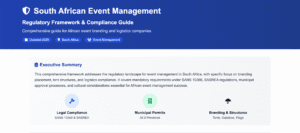Event planning can be a stressful experience, but with proper planning, you can pull off a successful event that leaves a lasting impression on your guests. Whether it’s a corporate conference or a social gathering, the steps to plan an event are the same.
In this section, we will dive into the 10 essential steps that you need to follow to plan an event successfully. From setting objectives to evaluating the event’s success, we’ll cover everything you need to know. So, let’s get started!
Key Takeaways:
- The 10 steps to plan an event successfully
- Importance of following a structured approach to event planning
- Basic knowledge of what it takes to plan an event
Set Clear Objectives for Your Event
Event management begins with setting clear and achievable objectives. This is the foundation for planning every aspect of your event. By establishing the purpose of your event, you can create a roadmap for achieving your goals. Whether you aim to generate leads, raise awareness or provide an educational experience, you need to define your objectives to tailor your event planning process. Once your objectives are outlined, you can proceed to the 7 stages of event planning, which guide you through the entire process. Each stage builds upon the previous one, ensuring that every detail aligns with your established goals. By following this structured approach, you can enhance the overall success and impact of your event.
Define your objectives based on the SMART criteria; Specific, Measurable, Attainable, Relevant, and Time-bound. Your objectives should clearly define what you aim to achieve, how you plan to measure your success, and the specific deadline for achieving them. This will guide you through developing the concept and design of your event, including the choice of venue and activities.
Create a Comprehensive Event Checklist
Now that you’ve set clear objectives for your event, it’s time to start organizing the logistics. Creating a comprehensive event checklist will help you stay on track and ensure that every detail is taken care of. Here are some essential elements to include in your event checklist:
| Event Coordination | Event Logistics | Event Checklist |
|---|---|---|
| Identify the event team and delegate responsibilities | Source and book a suitable venue | Set up registration process |
| Establish a timeline and deadlines for each task | Arrange catering and refreshments | Prepare event program |
| Develop a risk management plan | Arrange transportation and parking | Prepare name tags and badges |
It’s important to have a detailed event checklist to ensure that nothing is overlooked. By including logistical elements such as venue and catering, as well as administrative elements such as registration and name tags, you can cover all aspects of the event in a systematic way.
As you work through your event checklist, be sure to involve your team to ensure that everyone is on the same page. Regular meetings and updates can help keep everyone informed and prevent any last-minute surprises.
In the next section, we’ll explore how to develop a realistic event budget to ensure that your event is financially viable and successful.
Develop a Realistic Event Budget
Budgeting is a critical aspect of event planning. To develop a realistic event budget, you need to determine all the expenses involved in organizing the event. Start by identifying the essential components such as venue rental, catering, equipment rentals, and staff wages. Then, you can determine the total costs involved in each of these areas and allocate a budget for them.
It’s important to keep in mind that unexpected costs can always arise, so always leave some room in your budget for contingencies. Keep a record of all your expenses and track them against your budget throughout the planning process.
When creating your budget, don’t forget to also consider potential sources of income such as ticket sales, sponsorships, and donations. These can help offset your costs and improve the overall profitability of your event.
Remember to break down your expenses into categories and allocate a budget for each category. This will help you ensure that all necessary expenses are accounted for, and will also allow you to easily identify areas where you may need to cut back on costs.
By following these tips, you can develop a realistic event budget that aligns with your objectives and maximizes your resources. With careful planning and management, you can successfully organize an event without breaking the bank.
Implement Effective Event Promotion and Marketing Strategies
Event promotion is key to attract attendees and create buzz around your event. The following strategies will help you to promote your event and achieve your objectives:
- Social media marketing: Utilize social media platforms like Facebook, Twitter, and LinkedIn to reach your target audience. Create engaging posts, use relevant hashtags, and encourage attendees to share their experiences.
- Email marketing: Send out regular email updates to your attendees and potential attendees. Provide valuable content, offer incentives, and include clear calls to action.
- Partner with influencers: Collaborate with influencers or industry experts to promote your event to their followers. This can expand your reach and generate more interest.
- Traditional advertising: Consider using traditional advertising methods like billboards, radio ads, or print media to reach a wider audience.
Remember, effective event promotion is all about creating a buzz and getting people excited about your event. Use a combination of these strategies to maximize attendance and make your event a success.
In Conclusion
Planning an event can be a daunting task, but with the right approach and mindset, it can also be an exciting and rewarding experience. By following these ten steps, you are now equipped with the knowledge and tools necessary to plan an event successfully.
Remember that setting clear objectives is crucial to creating a lasting impression on attendees. Without goals, it’s easy to overlook essential details and lose track of your purpose. Make sure to create a comprehensive event checklist that outlines every aspect of the planning process, from sourcing venues and vendors to managing registration and timelines.
Budgeting is also a critical aspect of event planning. Be sure to develop a realistic budget that considers all expenses, and track your spending to ensure you stay within your means.
Implement Effective Event Promotion and Marketing Strategies
Finally, promoting and marketing your event is just as crucial as planning it. Utilise various methods to raise awareness and attract attendees, including social media platforms, partnerships and traditional advertising. With the right strategies in place, you can create a buzz and maximise attendance.
In summary, planning a successful event requires a combination of creativity, attention to detail and a willingness to adapt to changing circumstances. By following these ten steps, you can create an event that stands out and makes a lasting impact.
Do Timelines Play a Crucial Role in Planning Corporate Events?
Creating timelines for corporate events is essential for effective planning. Timelines provide a visual representation of tasks, deadlines, and dependencies, allowing event organizers to stay organized and on track. From booking venues to arranging logistics, a well-structured timeline ensures smooth execution and minimizes potential challenges. By keeping all stakeholders informed and aligned, timelines become a crucial tool in successful corporate event planning.
FAQ
Q: What are the 10 steps to plan an event successfully?
A: The 10 steps to plan an event successfully are as follows:
Q: Why is it important to set clear objectives for an event?
A: Setting clear objectives for an event is important because it helps you define what you hope to achieve. It allows you to tailor your planning process to meet specific goals, whether it’s raising awareness, generating leads, or providing an educational experience.
Q: How do I create a comprehensive event checklist?
A: To create a comprehensive event checklist, you need to consider all the essential elements of event coordination and logistics. This includes sourcing venues and vendors, managing registrations and timelines, and ensuring that no detail is overlooked.
Q: Why is developing a realistic event budget important?
A: Developing a realistic event budget is important because it ensures that you allocate resources effectively and stay within your financial means. It helps you estimate costs, track expenses, and maximize your budget to achieve your event’s objectives.
Q: What are some effective event promotion and marketing strategies?
A: Some effective event promotion and marketing strategies include utilizing social media platforms, leveraging partnerships, and utilizing traditional advertising methods. These strategies help raise awareness and attract attendees to your event.
Q: How can following these 10 steps help me plan successful events?
A: By following these 10 steps, you can ensure that your event runs smoothly and achieves its objectives. Setting clear objectives, creating a comprehensive checklist, developing a realistic budget, and implementing effective promotion strategies are key to planning successful events that leave a lasting impression.




